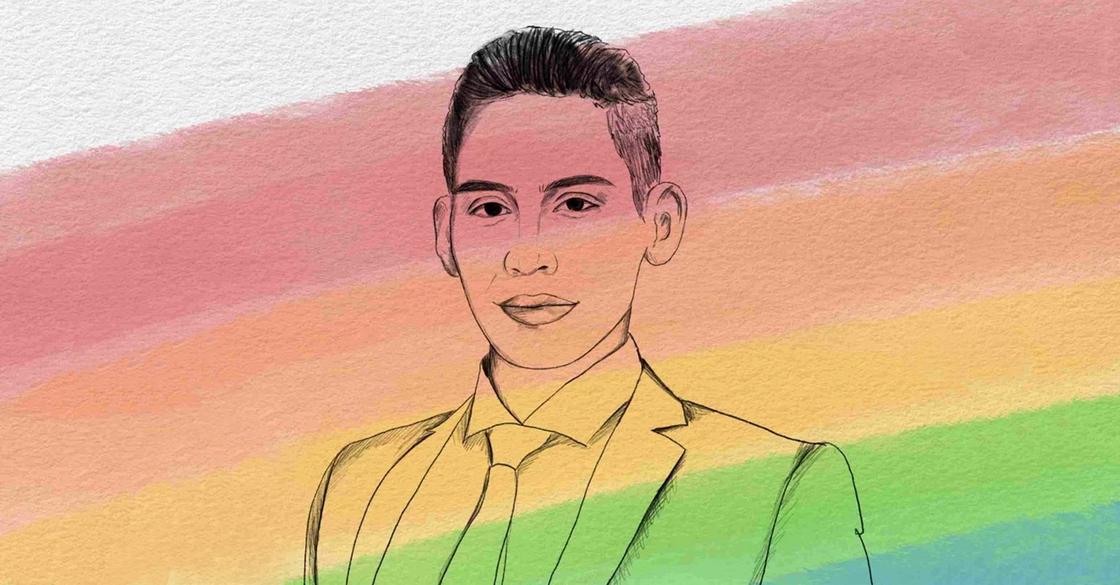Being a startup founder poses challenges on its own—from attracting investors to managing multiple functions, and facing countless failures in the process. This struggle can be doubly hard for members of the LGBTQIA+ community.
While there is not enough data or local study to back this up (an issue in itself), the low visibility of the members can provide enough evidence.
InvestEd President and Co-founder Ronald “Ro” Replan, openly gay and LGBTQIA+ rights advocate, can attest to this.
Entering the startup scene in 2015, Ro felt lost without visible LGBTQIA+ role models in the ecosystem. But fueled by InvestEd’s mission to make education accessible for all, he now thrives and hopes to support other LGBTQIA+ entrepreneurs.
How does your queerness affect how you run InvestEd as its president?
Growing up, I was called “bakla” (fa***t), “taba” (overweight), and “itim” (dark-skinned). Being bullied for one thing can give someone a lifelong scar, but in my case… getting the bullying trifecta had another effect: a wild ambition and a thick skin.
This is why, as a leader, I like to rally people towards tough challenges and I get energized to see people grow in the process.
What are the challenges you experience in leading InvestEd that can be attributed to being an openly gay founder?
I find that the startup world is not unwelcoming to LGBTQIA+ members. But it doesn’t help a gay person of color to see that prominent startup founders are mostly straight, often white, cisgender male.
That said, I realized that my obstacle was not so much external in nature – it was my own internalized homophobia and how I allow it to make me feel less confident.
For example, I used to think that people responded to me less because my voice is not deep and”manly”. In meetings, I felt self-conscious and thought my only options were to shut up or get disliked.
How do you overcome these challenges?
In X-men First Class, Magneto said this most profound quote to Mystique: “If you’re using half your concentration to look normal, then you’re only half paying attention to whatever else you’re doing…”
I live by this quote everyday. Instead of consuming precious brainpower overthinking how I might be perceived, I focus all my energy on the challenge I am solving.
For example, I come prepared with data-backed recommendations in every meeting and I make sure to catch every idea from all attendees, regardless of who they are. This solution-oriented mindset has given me the courage to do what’s right, even if it means getting disliked.
By focusing on problem solving, I gain more respect from people who are truly value-adding because people who matter care more about the mission than about other people’s mannerisms.
What message or impact does being a gay founder send to fellow LGBQTIA+ entrepreneurs trying to succeed?
First, be very clear about your anchor – that one thing that has always prevented you from quitting. To me, it’s knowing that I have unique skills and experiences that can make education accessible to low-income youth.
Self-confidence has to have a strong and clear anchor. Otherwise, it’s easy to be swept away with doubts.
Second, surround yourself with people who can reinforce your anchor in an objective way. I refer to these people as champions. As a founder, champions are likely mentors, advisers, and investors. They are personally invested in your success and they believe in your capabilities.
You can get champions by habitually consulting those who care about the problem you are solving.
Finally, ensure that Equity, Diversity and Inclusion (EDI) are built into your company’s policies and practices. An LGBTQIA+ member is not immune to being prejudiced. For example, if you hire strictly from the most prestigious institutions, then you may be perpetuating discrimination and lack of fairness in the world.
What will make InvestEd more inclusive for members of the LGBTQIA+ community?
One way to make InvestEd most welcoming to LGBTQIA+ members and other groups: make EDI training mandatory and facilitate ongoing conversations led by a strong EDI Committee.
Providing resources that educate the team on systemic discrimination, unconscious biases, and microaggressions can change an organizational culture.
What do you think should be done to make the Philippines startup scene more welcoming for the LGBTQIA+ community?
All the agents in the ecosystem (including professional groups, funders, and incubators) must work together to improve representation.
For us to have more representatives, there needs to be a specialized support system that will nurture LGBTQIA+ founders. For now, the best thing that startup founders can do, whether LGBTQIA+ or not, is to support one another on this journey (share information, refer contacts, and forge business alliances) because regardless of the founder’s background and resolve, building a successful startup is not a journey that one can take on alone.
